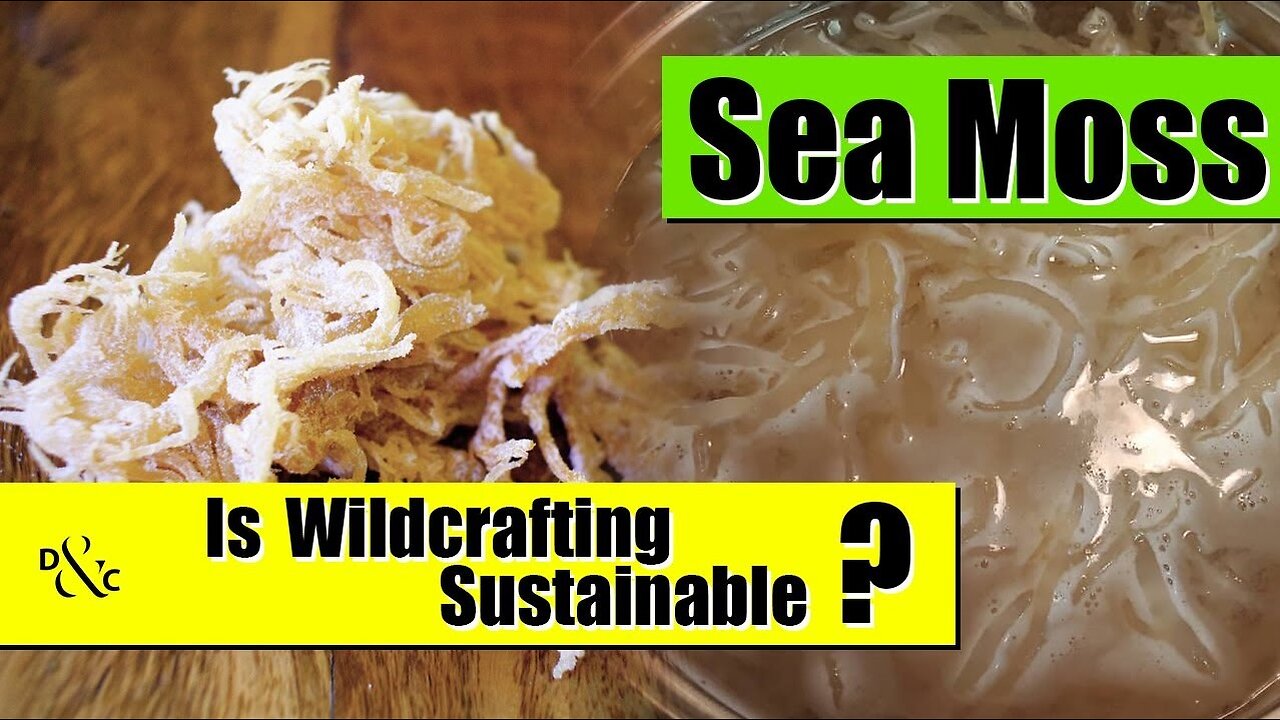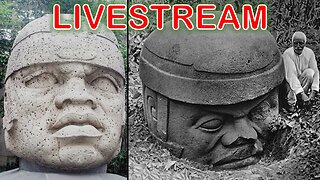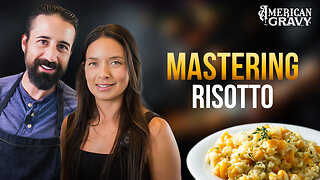Premium Only Content

Is Wildcrafted Sea Moss Sustainable?
While traveling through Vietnam to see the emerging seaweed farming industry recently, I found that there was a combination of approaches to harvesting seaweed. I was specifically interested in learning more about farmed and wildcrafted sea moss techniques.
Although the seaweed farming industry is relatively new in Vietnam, there have been some strategies and techniques I observed that helped reduce crop impacts. These mainly were centered around fish and turtles eating the crops before harvesting.
Humane approaches to controlling access to seaweed through the use of blanketing to support the sea moss made it hard for large fish and turtles to get to the sea moss. This did little to stop smaller fish, or other challenges for farmers such as oyster eggs and mussel eggs attaching to the crop.
My firm belief is that as seaweed increases in popularity and becomes a more common food source for the wider population, wildcrafted sea moss or any other type of wildcrafted seaweed will not be sustainable.
More and more research is showing that seaweed can be used in more than just food. The future of bioplastics look interesting, and seaweed features prominently in this.
So we need to get this right before the demand for wildcrafted sea moss becomes something that ruins our oceans. We're really only just starting to explore this area of our planet more in modern times, and it would be such a shame to not learn from the mistakes of our past.
#responsiblefarming needs to be researched more to ensue we have a reliable food supply that doesn't impact negatively on our planet.
For more about what to consider before you buy sea moss, please read https://detoxandcure.com/what-to-know-before-you-buy-sea-moss/ and do your own research on where your sea moss comes from and how it gets to your table.
To find out more about Mr. Hai's farm and see some photos, check out https://www.instagram.com/detoxandcure/ for posts from late April in 2019. There will be subtitled video coming where I was fortunate enough to be allowed to interview Mr. Hai and his family about their lives as seaweed farmers.
-
 14:06
14:06
Stephen Gardner
4 hours ago🔥Trump FIGHTS BACK: Biden White House BUSTED in MAJOR SCANDAL!
32.8K114 -
 6:08:13
6:08:13
MissesMaam
16 hours agoCelebrating New Years 2025 💚✨
78.9K17 -
 3:22:32
3:22:32
PandaSub2000
3 days agoPlatformer ExtravaPandza | ULTRA BEST AT GAMES (Original Live Version)
121K35 -
 5:43:19
5:43:19
Bitcoin Magazine
19 hours agoLIVE: MICHAEL SAYLOR'S $100K NYE BITCOIN PARTY
149K15 -
 5:06:15
5:06:15
AirCondaTv Gaming
1 day ago $40.36 earnedOnce Human - New Year. New Meta. Happy New Year!
167K20 -
 1:00:37
1:00:37
Bright Insight
10 days agoOlmec Heads are Evidence of Lost Ancient Advanced Civilization
157K231 -
 13:43
13:43
Cooking with Gruel
2 days agoCreamy Saffron Risotto
138K25 -
 18:38
18:38
DeVory Darkins
1 day ago $48.32 earnedTrump Makes HUGE Announcement that may spark GOP Battle
173K102 -
 2:13:05
2:13:05
The Nerd Realm
1 day ago $14.04 earnedNew Years Eve! Fortnite Hunters w/ YOU! Creator Code: NERDREALM
119K6 -
 11:04:44
11:04:44
FusedAegisTV
1 day agoNYE Eve! - 2025 Incoming 🎉 - 12hr Variety Stream!
167K7